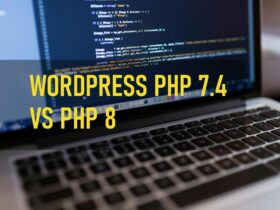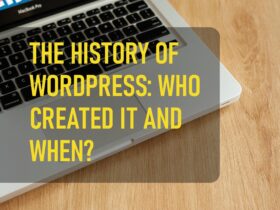When it comes to building and managing a website, selecting the right content management system (CMS) is essential for success. Two of the most popular open-source CMS platforms are WordPress and Joomla. While both allow you to build and maintain websites without needing to write code, they offer distinct advantages and cater to different types of users.
In this article, we’ll break down the key differences between WordPress and Joomla to help you decide which CMS best suits your needs.
What is WordPress?
WordPress is the most popular CMS in the world, powering over 40% of all websites. It was originally designed as a blogging platform but has evolved into a fully customizable CMS capable of handling all types of websites, from blogs and portfolios to large eCommerce stores and corporate websites.
WordPress is known for its user-friendly interface, thousands of themes and plugins, and a massive community that provides ongoing support and development.
What is Joomla?
Joomla is another powerful open-source CMS that’s often seen as a middle ground between WordPress and Drupal. It is well-suited for users who need more flexibility and control over their website’s structure but may not have advanced coding skills. Like WordPress, Joomla can be used to create various types of websites, including blogs, eCommerce platforms, and complex business websites.
Joomla offers greater flexibility in terms of managing complex content structures, making it ideal for users who need advanced content management capabilities without diving deep into custom code.
Key Differences Between WordPress and Joomla
1. Ease of Use
- WordPress:
WordPress is widely considered one of the easiest CMS platforms to use. Its dashboard is intuitive, and its block-based editor (Gutenberg) allows users to create content using a simple drag-and-drop interface. WordPress’s user-friendly nature makes it a great choice for beginners or non-technical users who want to build and manage a website quickly. - Joomla:
Joomla has a steeper learning curve compared to WordPress. Its interface is more complex, with multiple levels of customization that may be overwhelming for beginners. However, for users with some technical knowledge, Joomla offers greater control over content management, user permissions, and website structure.
Winner: WordPress
WordPress wins for ease of use, particularly for beginners or those looking for a quick setup with minimal hassle.
2. Customization and Flexibility
- WordPress:
WordPress offers thousands of themes and plugins, making it incredibly versatile. Whether you’re building a blog, an eCommerce store, or a business website, WordPress has themes and plugins to meet virtually every need. However, while WordPress is easy to customize, it may require more plugins to achieve certain advanced functionalities that Joomla offers out of the box. - Joomla:
Joomla is more flexible when it comes to complex website structures. It allows for extensive customization, particularly for managing multiple content types. Joomla has built-in multilingual support, and its module-based system makes it easier to create more complex websites without needing third-party extensions. While it doesn’t have as large a plugin library as WordPress, it does offer a more flexible core for users who want full control over their website’s structure.
Winner: Joomla
For advanced customization and flexibility, especially for complex content-driven sites, Joomla takes the lead.
3. SEO Capabilities
- WordPress:
WordPress is highly SEO-friendly, especially with the help of plugins like Yoast SEO or Rank Math, which make optimizing on-page SEO elements such as meta descriptions, titles, and URLs straightforward. WordPress themes and plugins also tend to follow good coding practices, which can enhance SEO performance. - Joomla:
Joomla offers strong SEO capabilities out of the box. It allows you to easily edit meta tags, manage SEO-friendly URLs, and control page titles and descriptions without additional plugins. While Joomla’s built-in SEO tools are robust, some users may still prefer using extensions for additional SEO functionality, much like WordPress users do.
Winner: Tie
Both WordPress and Joomla offer strong SEO features, with WordPress excelling through plugins and Joomla having built-in SEO tools.
4. Security
- WordPress:
Because WordPress is the most popular CMS, it is also the most targeted by hackers. Its reliance on third-party plugins can sometimes introduce vulnerabilities if plugins are not updated or maintained properly. That said, WordPress has a wide range of security plugins that help secure your site, and regular updates from the core WordPress team address security issues. - Joomla:
Joomla is considered more secure out of the box compared to WordPress. It offers more advanced user access control levels and has fewer third-party extensions, which reduces the risk of vulnerabilities. Joomla also provides built-in options for enabling SSL certificates and two-factor authentication (2FA).
Winner: Joomla
Joomla has stronger built-in security features, though WordPress can be just as secure with the proper plugins and maintenance.
5. Community and Support
- WordPress:
WordPress has a massive global community, with thousands of developers, forums, and tutorials readily available to support users. Whether you’re looking for free advice or paid support, WordPress’s vast ecosystem means you’ll never be far from help. - Joomla:
Joomla also has an active community, though it is smaller than WordPress’s. Joomla’s forums and support resources are comprehensive, but finding extensions, themes, and tutorials may take a bit more time. That said, Joomla offers better official documentation for advanced users.
Winner: WordPress
WordPress wins in terms of sheer community size and available support resources, though Joomla provides high-quality official documentation for more technical users.
6. Cost
- WordPress:
WordPress is free to use, but you will need to pay for hosting, premium themes, and plugins if needed. The overall cost of a WordPress website can range from minimal to substantial depending on the level of customization and features required. - Joomla:
Like WordPress, Joomla is free, but you’ll need to pay for hosting and any premium extensions or templates. Joomla is often considered to be slightly more cost-effective for more complex websites, as it requires fewer extensions to achieve certain functionalities.
Winner: Tie
Both WordPress and Joomla are free, but costs will depend on your choice of hosting, templates, and any additional features.
WordPress vs. Joomla: Comparison Table
| Feature | WordPress | Joomla |
|---|---|---|
| Ease of Use | Beginner-friendly, intuitive interface | Steeper learning curve, more complex |
| Customization | Extensive themes and plugins available | More flexible for complex content structures |
| SEO | Excellent with plugins like Yoast | Strong built-in SEO features |
| Security | Requires security plugins for best results | Strong built-in security and access control |
| Community and Support | Large community, lots of resources | Smaller community, strong official documentation |
| Cost | Free core, paid themes and plugins | Free core, fewer premium extensions needed |
| Best for | Blogs, small to medium websites, eCommerce | Complex websites, multilingual sites, advanced content management |
Which CMS is Right for You?
When to Choose WordPress:
- You’re a beginner looking for a simple, user-friendly CMS.
- You want access to a vast array of themes and plugins to build any type of website.
- You’re creating a blog, portfolio, or eCommerce store and need easy setup.
- You want extensive community support and resources available.
When to Choose Joomla:
- You have some technical skills and want more control over your site’s structure.
- You need advanced user access control or are managing complex content types.
- You’re building a multilingual website or a larger business platform with more complex content requirements.
- Security and flexibility are high priorities.
Conclusion
Both WordPress and Joomla are excellent CMS options, but they cater to different types of users. WordPress is the best choice for beginners or those who need a fast, easy way to create a website with access to thousands of themes and plugins. It’s a versatile platform suitable for blogs, small businesses, and eCommerce stores.
On the other hand, Joomla offers greater flexibility and control for users with more complex needs. If you’re building a large, multilingual website or need advanced access control, Joomla might be the better option. Though it has a steeper learning curve, its built-in features provide a lot of power out of the box.
Ultimately, the right CMS for you will depend on your website’s requirements, your technical skill level, and the type of website you want to create.






Leave a Reply